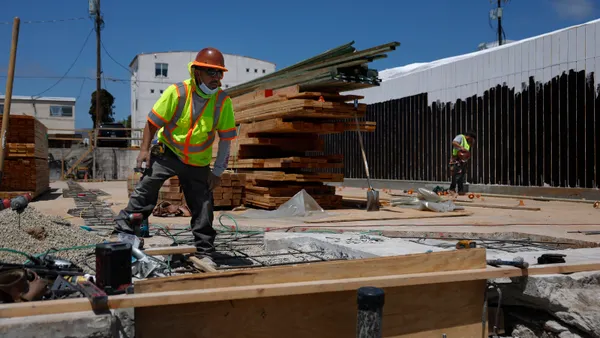Dive Brief:
- City leaders and housing advocates said the U.S. Department of Housing and Urban Development (HUD) should do more to fight segregation and uphold affordable housing during an event hosted Friday at the Newseum in Washington, DC. Speakers criticized HUD for playing a lesser role under President Trump and Secretary Ben Carson.
- The panelists of the event, dubbed "Building Equity," commemorated the 50th anniversary of the Fair Housing Act (FHA), which HUD enforces, but said there is still work to do.
- "It's just two steps forward and one step backward," said Ralph Blessing, a former student organizer in the Chicago-based Contract Buyers League that fought against housing discrimination on the basis of race. "It's an ongoing struggle."
Dive Insight:
Panelists also took aim at HUD for delaying the 2019 deadline on its Affirmatively Furthering Fair Housing policy. Communities were required to show they were taking active steps to undo racial segregation in their housing policies, but the Trump administration pushed back the deadline to comply.
The rule met one of the unenforced mandates of the FHA. And while jurisdictions are no longer required to comply until at least 2020, New York City Department of Housing, Preservation and Development commissioner Maria Torres-Springer said that city’s housing authority would work towards the 2019 compliance deadline regardless. She called HUD’s delay an "irresponsible decision that really rolls back a lot of the progress and a lot of the commitment. Now is not the time to put the brakes on this work."
As the Trump administration rolls back federal mandates — including on the likes of combating climate change and improving vehicle emissions standards — Torres-Springer’s comments indicate another area where cities are stepping up: in making sure housing receives further investment. Housing affordability remains a controversial topic for local governments, including in California, where state lawmakers voted to kill a contentious bill that would have allowed developers to build five-story buildings within a half mile of public rail stops.
In separate discussions at the event, panelists noted how the Internet of Things (IoT) has changed how Americans make money, so banks and other lending agencies should change how they take incomes into account when they do credit checks for mortgage applicants. For instance, estimates peg the number of U.S. Uber drivers at 3 million or more, while as of last year there were 660,000 Airbnb listings nationwide, but credit checks do not traditionally take that income into account. Vanita Gupta, president and CEO of The Leadership Conference, said it means a "whole economy [is] taking place that has largely been untouched."










